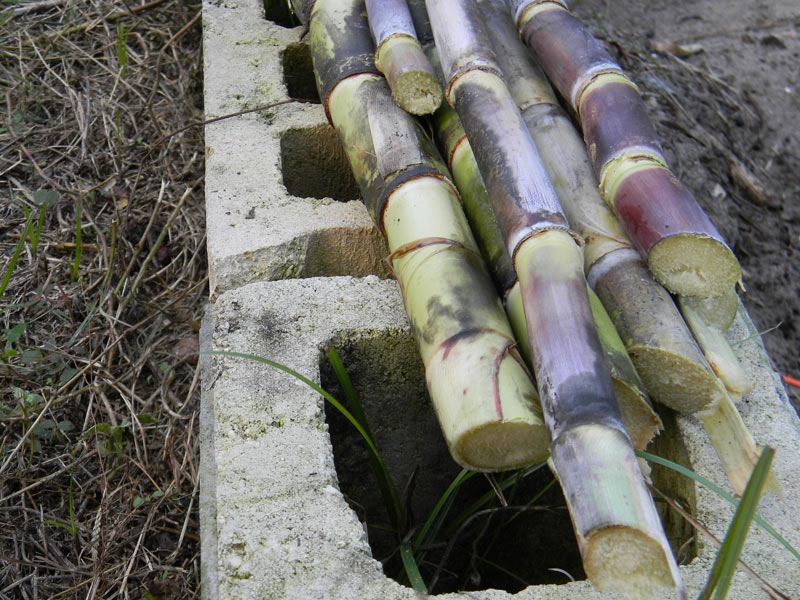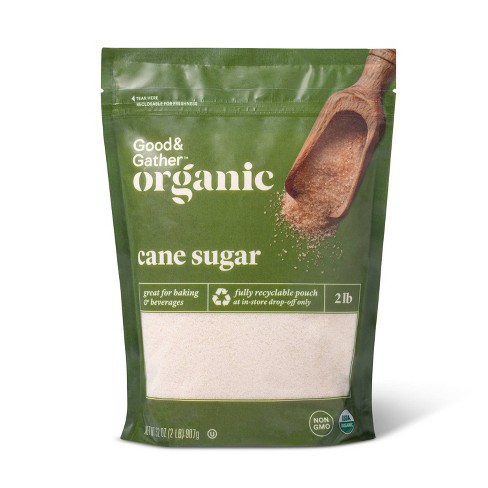Why Walking Cane Sugar Handling Chemicals Are Critical for Modern Sugar Refining
The role of walking stick sugar processing chemicals in modern sugar refining can not be overstated, as they are important to boosting both the efficiency of removal and the total top quality of the last item. Representatives such as phosphoric acid and specific flocculants are employed to get rid of impurities, leading to sugar that not just meets consumer expectations however additionally follows sector standards. Nonetheless, the effects of these chemicals expand beyond quality, touching upon market dynamics and environmental factors to consider. This raises vital inquiries regarding the sustainability of such methods and their effect on the future of sugar production.
Function of Processing Chemicals
The effectiveness of walking stick sugar handling hinges dramatically on the critical application of handling chemicals. These chemicals play a critical role in boosting the effectiveness and high quality of sugar removal and refining. From the first stages of juice extraction to the last purification actions, handling chemicals promote various important procedures.
In the extraction stage, chemicals such as phosphoric acid and calcium hydroxide are employed to optimize the information process, helping to get rid of contaminations and put on hold solids from the cane juice. This not only improves the return but additionally ensures the clarity of the last item. Additionally, agents like flocculants help in the fast settling of impurities, therefore improving the overall procedure.
Triggered carbon and ion exchange resins offer to get rid of color and smell, making sure that the refined sugar satisfies customer high quality criteria. Thus, the thorough choice and application of these chemicals are vital for attaining ideal end results in cane sugar processing.
Trick Kinds of Chemicals
Cane sugar handling relies on a range of crucial chemicals that promote each phase of manufacturing. These chemicals play necessary functions in clearing up, bleaching, and cleansing the sugar removed from walking stick.
One main classification of chemicals includes flocculants, such as polyacrylamide, which aid in the explanation procedure by advertising the aggregation and settling of pollutants. In addition, calcium hydroxide is often used to counteract acidity and assist in the removal of non-sugar elements.
Whitening representatives, such as turned on carbon and sulfur dioxide, are used to decolorize the syrup, resulting in a more clear final item. These chemicals help eliminate color compounds that may affect the sugar's look and bankability.
In addition, phosphoric acid acts as a pH regulatory authority during the processing phases, ensuring optimum problems for the chemical activities involved in sugar extraction and filtration.
Other vital representatives include edta (ethylenediaminetetraacetic acid), which chelates steel ions that can catalyze unwanted reactions, and sodium hydroxide, which assists in pH control throughout the refining process. Jointly, these chemicals enhance efficiency and guarantee a top quality walking stick sugar item.
Benefits for Sugar Top Quality
Typically overlooked, making use of certain processing chemicals considerably enhances the overall quality of cane sugar. These chemicals play a pivotal function in refining procedures, making sure that the last product satisfies stringent market requirements for purity and preference.

Additionally, processing chemicals aid in achieving a constant granulation and structure, which are vital browse around here for consumer acceptance. By controlling the condensation process, these chemicals make sure that the sugar crystals form evenly, bring about a more appealing product that dissolves well in various applications.
Moreover, using these chemicals can improve the service life of cane sugar by minimizing dampness absorption and microbial growth. In general, the tactical application of processing chemicals is crucial for supplying top quality walking cane sugar that fulfills consumer assumptions and sector needs.
Ecological Influence Considerations

Additionally, the energy-intensive nature of sugar refining, compounded by chemical use, frequently leads to increased carbon discharges. This adds to climate adjustment and increases issues relating to the sustainability of existing refining techniques. Additionally, the sourcing of these chemicals might involve methods that endanger biodiversity, such as monoculture farming, which decreases the durability of agricultural communities.

To mitigate these impacts, sugar refiners are increasingly exploring lasting alternatives and embracing ideal methods that reduce chemical use. Carrying out rigorous environmental administration systems can help make sure that the refining process straightens with environmental standards and promotes biodiversity. Ultimately, a balanced method that focuses on both sugar high quality and environmental stewardship is necessary for the lasting feasibility of the sugar industry.
Future Patterns in Refining
As the sugar sector grapples with the ecological obstacles connected with standard refining methods, ingenious methods are arising to improve both performance and sustainability. One significant fad is the fostering of green chemistry concepts, which prioritize making use of non-toxic, eco-friendly handling chemicals. This shift not just reduces ecological effect however additionally addresses customer need for cleaner production methods.
Another promising development is the application of sophisticated purification innovations, such as membrane separation and adsorption procedures. These strategies improve the clarity and quality of the sugar while decreasing the quantity of wastewater generated throughout refining. In addition, the integration of try this web-site digital modern technologies, including IoT and AI, is transforming operational efficiency by enabling real-time monitoring and predictive maintenance, hence decreasing resource waste.
Additionally, using byproducts from sugar refining, such as bagasse and molasses, is gaining traction. These products can be exchanged biofuels or value-added items, contributing to a circular economic climate within the industry. Collectively, these fads signify a change towards even more sustainable practices that not just enhance functional efficiency but additionally line up with international sustainability goals, guaranteeing the future feasibility of sugar refining.
Conclusion
Cane sugar processing chemicals are crucial in contemporary sugar refining, significantly enhancing the performance and top quality of sugar removal. The strategic use these chemicals not just enhances the pureness and flavor of the final product however additionally makes sure consistent formation and structure. As the industry progressively prioritizes sustainability, the fostering of environmentally-friendly processing representatives is likely to form future patterns in refining, inevitably causing better items and extended service life for consumers.

Ultimately, a well balanced method that focuses on both sugar top quality and ecological stewardship is important for the lasting viability of the sugar sector.
Cane sugar handling chemicals are crucial in contemporary sugar refining, substantially improving the efficiency and high quality of sugar extraction.